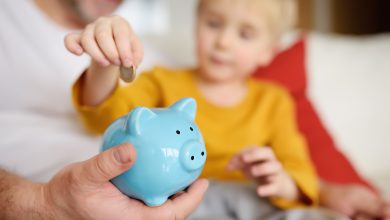Ten Tips to Help You Raise Confident Children

Ten Tips to Help You Raise Confident Children
If you’ve ever met a toddler, you may have noticed that they have some of the highest confidence levels out there. At two years old, they are the fastest, can jump the highest, and know all their numbers and letters. None of it is true, but try convincing them of that.
Dr. Eileen Kennedy-Moore, the author of the book “Kid Confidence,” calls the range of 2 to 4 years old the “Look-at-Me! Stage” of life. They want all eyes on them to affirm that they are, indeed, an incredible human being.
This is also the stage where confidences starts to get damaged. While kids are endlessly proud of themselves when an adult tells them how great they are, “… they cringe in shame when they’re scolded or when they can’t master a task.”
If you have a toddler whose ego has taken a hit or who is naturally unsure of themself, here are 10 ways to build self-esteem in your children.
1. Keep the focus off beauty and intelligence.
“Building Confidence in Your Child” points out that the two things society values most in children — beauty and intelligence — are the things we initially believe our children have endless supplies of. Even though we know it isn’t true, kids, unfortunately, feel the pressure to be both good-looking and smart at a very early age.
Thankfully, you as a parent can combat this. Tell your son or daughter that they look nice and praise them when they have a good idea, but make sure to point out their other strengths more often. They have a whole list of traits just waiting for you as the parent to foster and encourage!
2. Make time for play together.
Playtime shows your kids that they are valuable and worth your time. Don’t forget to focus on them (not your phone, TV, or magazine) while you’re playing. Children are incredibly perceptive when it comes to knowing whether someone’s attention is on them or not.
3. Provide them with small, “real” jobs.
Offer your kids opportunities to take on responsibility and feel like their contributions are valued. Household chores, such as setting the table, tidying up toys, doing the dishes, or washing the car, are easy places to start. If they have younger siblings, have them help pack the diaper bag or make sure the pacifier isn’t forgotten before you leave the house. Don’t forget to think about your child’s interests and give them a job that lets them feel useful and successful.
4. Offer more “encouragement” and less “praise.”
The difference between “encouragement” and “praise” is subtle, but it’s very helpful as a parent. “Encouragement” rewards the person. (“Wow, you worked so hard on that block tower!”) “Praise” rewards the task. (“Wow, your tower looks amazing!”) Both are good, but encouragement acknowledges the effort. That’s where we want a kid’s confidence to come from.
5. Encourage friendships.
Making and keeping friends is something that builds confidence in everyone, regardless of their age. Toddlers are new at everything (that goes double for social skills), so stay close to help your child learn to share and to work through problems that come up. As they get older, kids will learn to work through disagreements and squabbles among themselves. Preschool is a great way to build your toddler’s confidence because it allows for them to make friends in a safe, constructive environment.
6. Encourage them when they deal with adversity.
Whether it’s sharing or potty training, toddlers are frequent riders of the struggle bus. Mom and dad can use all of these situations to reiterate how enduring challenging situations are worth it in the end. The most important thing parents can do is encourage their kids and not constantly intervene. When kids feel like they accomplished something themselves, that’s the kind of confidence that sticks.
7. Help your child use words to work through challenges.
For toddlers still learning how to speak, giving them the words to use — especially in situations where they may be disappointed or frustrated — helps them understand what’s going on and how to work toward a solution. For example, “Thank you so much for trying to wash the dishes. You spilled some water, though. Come grab a towel with me, and we’ll clean up.” Having those words gives them the confidence to ask for help or solve the problem in the future.
8. Let your kids see you fail.
As weird as it sounds, watching you make a mistake is a really good way to boost your child’s confidence. “Seeing you mess up and not make a big deal about it will make little kids feel so much better,” says Dr. Kathy Hirsh-Pasek, professor of psychology at Temple University. Plus, it gives them the opportunity to see firsthand how to deal with and address failure.
9. Never criticize their performance.
Few things will damage your toddler’s confidence more than criticizing their efforts. We’re not talking about giving correction or useful feedback. They need that! However, telling them they’re doing a bad job or being critical without being helpful creates an environment where they’ll be too scared to try anything because the outcome will be anger or disappointment.
10. Start working now on moving past “self-focus.”
“Kid Confidence” makes the painful observation that kids today are under enormous pressure to perform. Parents can help their toddler’s self-esteem by not contributing to the chaos. The author says, “When children are less concerned with evaluating, comparing, protecting, defending, promoting, or enhancing their self-image, they’re freer to empathize with others, genuinely engage in learning, and identify with values that are bigger than themselves.”
“Am I Good Enough?”
Dr. Kennedy-Moore closes “Kid Confidence” with this thought: “Real self-esteem is about being able to let go of the question, ‘Am I good enough?’ in order to create a fuller, richer life.”
As a parent, you are the most prominent adult in your child’s life. They are looking to you to help them build their sense of self and worth. By being attentive, loving, and kind, they can find the support in their relationship with you they’ll need as life gets harder and unkinder. And those of us at Little Sunshine’s Playhouse are here to help build your toddler’s confidence during our time with them. Each August, Little Sunshine’s curriculum is “I am Special/All About Me.” This curriculum theme focuses on each student as an individual to identify and encourage each child’s strengths and build their self-esteem through activities with their classmates and teachers.
Resources
Looking for books that can help when it comes to increasing your kids’ confidence? Check these out:
A guide for parents/guardians with activities:
Toddler age:
- I Am Just Right by David McPhail
- Go Get ‘Em Tiger by Sabrine Moyle
- Elmer by David McKee
Preschool+ age:
- Remarkable You by Pat Z. Miller
- I Believe I Can by Grace Byers
- You Are Awesome by Susann Hoffman
- Tomorrow I’ll Be Brave by Jessica Hische
- Red: A Crayon’s Story by Michael Hall
- Giraffe Problems by John Jory





